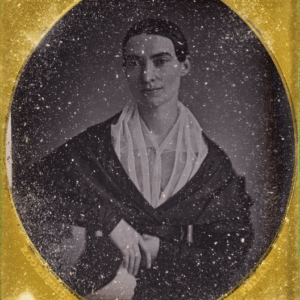JTF (just the facts): Self published (by Ugly Dog) in 2020 (here). Hardcover with jacket, unpaginated, with 57 black and white photographs (by the artist) and 6 color photographs (by the artist’s father). Includes a text by the artist, two hand drawn maps, and several hand written captions. In an edition of 600 copies. (Cover and spread shots below.)
This artist’s book is not to be confused with the catalog of the same name from an exhibit of Hura’s project at the Cincinnati Art Museum (here), co-published by Candor Arts (here).
Comments/Context: Over the past decade, Sohrab Hura’s photographic perspectives have been widening at an accelerating pace. The Indian photographer’s first photobook projects stayed close to home and family, documenting the ups and downs of life with his mother, who has battled schizophrenia since he was a teenager (here and here). More recently, he has broadened his lens to include an examination of the socio-political forces at work in his home country, digging into the surreal edge between fact and fiction (in the much acclaimed The Coast, here).
During this time, Hura became a nominee at Magnum Photos in 2014, and ultimately an associate in 2018, which brought him into contact with a global group of highly accomplished photographers. In 2016, he was invited to join Alec Soth and Jim Goldberg on what would become the sixth trip in the Postcards from America project. Their collective journey took them to the American South, and in particular to the Mississippi River delta near New Orleans, where they each made their own pictures. Hura has since gathered his images from that trip into a self-published photobook called The Levee.
2016 marked the election of Donald Trump as President of the United States, and Hura’s photographs take place in that transitional moment, and in the years since, outsider examinations of contemporary America by esteemed photographers from all over the world have multiplied. While Americans have had their own pitched struggles with coming to terms with the contradictions and extremes of a Trumpian world, foreigners have brought an alternate vantage point, one often rooted in the optimism that America has historically represented. But many have been disillusioned by what they have found, the national reality at the moment not necessarily matching the dream, and so many of the resulting projects have been filled with a strong undercurrent of dissonance.
Hura’s photobook uses a journey made by his father on a cargo ship up the Mississippi as a foil for his own photography trip. The book opens with a series of snapshots taken by Hura’s father, each documenting the progress of ships on the river amid rain, mist, and heavy boat traffic. Interestingly, Hura’s father never leaves the ship (immigration rules kept him on board), but he sends along cautionary words to his son to “be careful” – the America he envisioned from the ship (and which has been framed by news reports and other media) seemed increasingly dangerous: “Guns, Violence, Racism, Trump, A certain loss of tenderness…” And while his father looked at America from the water, his son’s journey through the towns along the river was made from the opposite side of the levee, always on the land, and his black and white photographs end up providing a nuanced counterpoint to his father’s simplified worries.
In many ways, Hura faced a massive artistic challenge – how to go on a classic American photographic road trip, and find ways to honor that history but also make it his own. Not surprisingly, Hura starts with the road itself, chasing long angles that extend to the horizon and slash across his frames. Along the road, he notices motifs we have seen before, but that he sees with renewed attention: parked cars, lonely mailboxes, vacant lots, broken fast food signs, and even a sad turtle. This fresh eyed curiosity also manifests itself in sensitive photographs of the kinds of things visitors to Louisiana might find unexpected, but that quietly represent some of the deep rooted rhythms of the place – a tree covered in Mardi Gras beads, roadside joints like Dad’s Restaurant, the lingering presence of oil refineries, a record store featuring the classics of the blues, a number of churches, bibles, and ministers, and stark visual reminders of America’s racial history like a sign “For Colored Patrons Only”.
While signs of decay and outright ruin seem to have been consistently available to Hura on his journey, he doesn’t overly focus on these creeping failures. He does show us scrubby landscapes, piles of junked cars, and interiors ruined by floods or just left to rot, but these photographs are both elegantly composed and absent a sense of implied criticism – they are genuinely interested and sympathetic rather than judging. This same attitude can be found in a selection of pictures with carts and cages. Hura sees a dog getting a hose down bath in its wire crate, another getting a ride in a shopping cart, and a homeless person’s overfilled cart outside a Family Dollar store, and while each moment could have been composed to exaggerate a depressing truth, Hura consistently takes a more open-hearted path.
Birds also flutter through Hura’s visual flow, adding a quiet sense of uplift. Images of a bird on a branch and a cluster of seabirds in the sky bookend The Levee, marking the winding path from land to water. And along the way, they spring up here and there, like a natural salve. Birds of various kinds flutter in a muddy lot, soar overhead, attempt to land on a tilting birdhouse, and stand waiting on the bank to snatch fish, each part of the flow of life. Even when Hura notices a fallen martin house and the carcass of a dead blackbird, he does so reverently.
Some of Hura’s strongest photographs are of strangers, where a fleeting gesture or expression reveals a slice of humanity. A young man carries a mattress on a back like a religious penitent. Some friends pull a suited boy in a wheelchair toward a prom limousine. A young man with a wrapped wrist relaxes near a car with a dented hood. An African-American woman closes her long-lashed eyes for just a moment, her folded hands exuding warmth and calm. And other images of hands connect two elderly women (one white and one black), the caress of a young couple, the helping hand offered to an elderly woman with a walker, a young girl joyfully standing on the hands of a woman, and the hands of a man scavenging bricks from the dump. All along his road, Hura has seen these touches, and these connections weave the community together.
The design of The Levee is modest, bringing in hand written drawings and captions that give the book a personal tone. The book itself has a cozy hand feel, and the image reproductions are decently small, forcing the viewer to get in closer to see all the details. The result is a photobook experience that is intimate and engaged, almost delicate.
So with all the failings that Hura encountered during his road trip through Louisiana, The Levee is still a remarkably compassionate and empathetic artistic statement, which says something about Hura’s evolving eye as a photographer. In a sense, his father warned him against the potential dangers he might encounter, and yet, he still searched out and found balanced moments of grace. This is evidence of the kind of open mindedness, humanism, and sophistication of thinking that will serve him well going forward. The Levee is in many ways a subtle and understated photobook, and that reserve is refreshing; it’s also a key to its durable success. Hura’s consistently non-judgmental approach allows him to see with more clarity and insight than the vast majority of outsiders who venture into the American South; those armed with their preconceptions find what they are looking for, while Hura has thoughtfully tried to meet Louisiana on its own terms.
Collector’s POV: Sohrab Hura is represented by Magnum Photos (here), where he became a nominee in 2014 and an associate in 2018. His work has not yet found its way to the secondary markets, so gallery retail remains the best option for those collectors interested in following up.





































